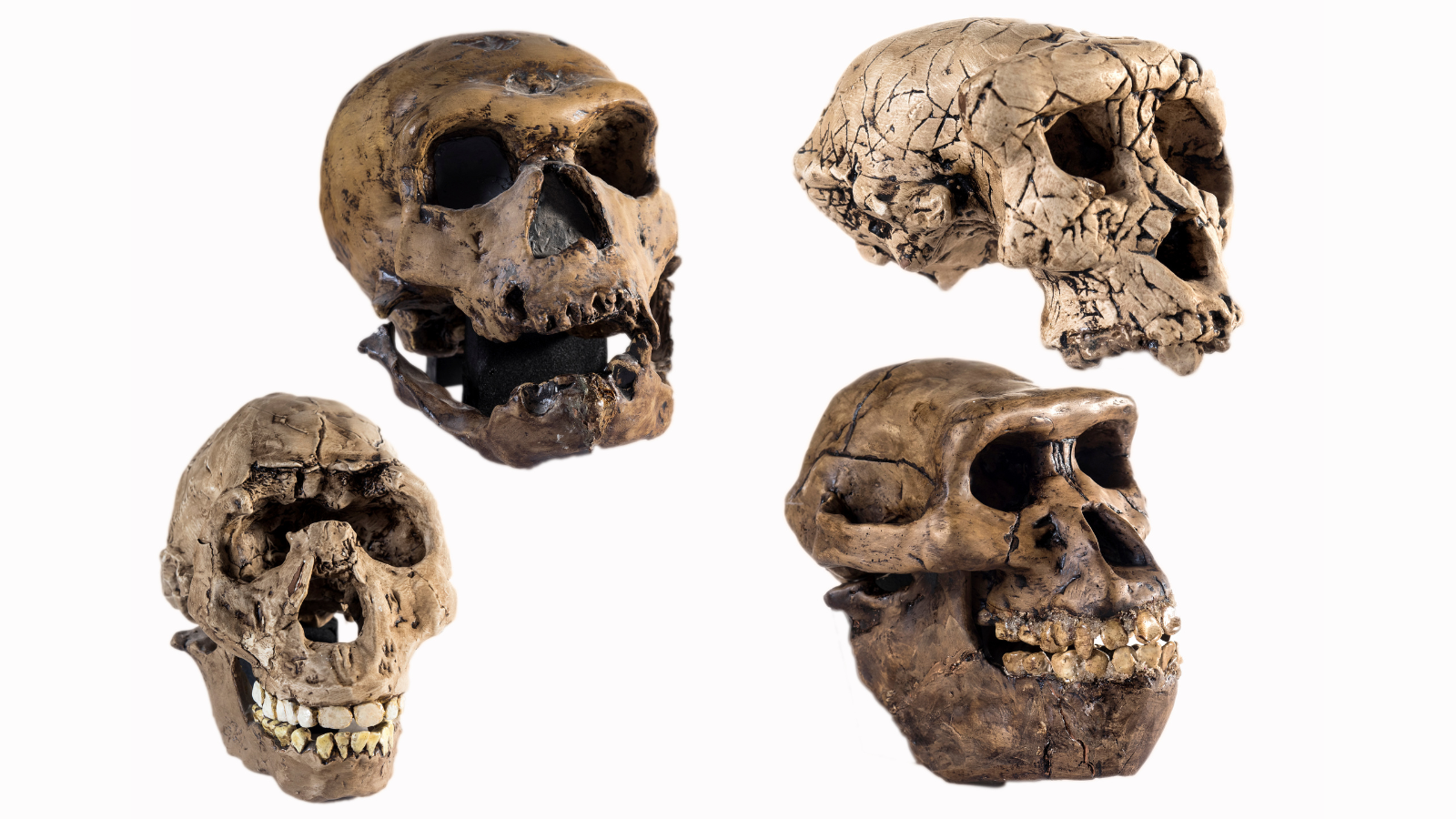Which Personality Types Are Most Likely to Be Happy?

We all want more well-being in our lives. But which traits are most likely to be associated with well-being? This is an important question because it can help inform our decision to cultivate some aspects of our being over others, and can even inform culture-wide interventions to increase societal levels of well-being.
But in answering this question there are some important considerations. For one, what aspect of well-being are we talking about? In recent years, multiple aspects of well-being have been studied that go beyond the stereotypical smiling and positive vibes associated with happiness (see here for a review). Here are 11 dimensions of well-being that have been systematically investigated based on three prominent models of well-being (Subjective Well-Being, Psychological Well-Being, and PERMA):
11 Dimensions of well-being:
- High Positive emotions (high frequency and intensity of positive moods and emotions)
- Low negative emotions (low frequency and intensity of negative moods and emotions)
- Life satisfaction (a positive subjective evaluation of one's life, using any information the person considers relevant)
- Autonomy (Being independent and able to resist social pressures)
- Environmental mastery (Ability to shape environments to suit one's needs and desires)
- Personal growth (Continuing to develop, rather than achieving a fixed state)
- Positive relations (Having warm and trusting interpersonal relationships)
- Self-acceptance (Positive attitudes toward oneself)
- Purpose and meaning in life (A clear sense of direction and meaning in one's efforts, or a connection to something greater than oneself)
- Engagement in life (being absorbed, interested, and involved in activities and life)
- Accomplishment (goal progress and attainment, and feelings of mastery, efficacy, and competence)
Another major consideration is: what aspect of personality are we talking about? The standard "Big Five" model of personality consists of 5 major dimensions of personality: extraversion, neuroticism, conscientiousness, agreeableness, and openness to experience. It has been shown over and over again that the two major personality traits most predictive of well-being in the Big Five model are high extraversion and low neuroticism. But is that it? If you're not extraverted or are a neurotic mess, there's no path to well-being--besides changing who you are?!
Well, a new study led by rising superstar Jessie Sun suggests there's more to the story. Across two samples (totaling over 700 participants), we analyzed the link between multiple aspects of well-being and a broader array of personality dispositions. We based our analysis on a new model of personality that breaks each Big Five trait down into two separate aspects. We found that this more finely grained personality analysis was really helpful in understanding the link to well-being. We also found it was helpful to broaden the measures of well-being. As Carol Ryff and her colleagues have noted, broadening the different ways someone can have well-being allows a broader range of personality profiles to be recognized.
So which personality traits are most predictive of well-being? The findings from both independent samples (one which I collected in collaboration with Susan Cain's Quiet Revolution) was strikingly similar. Out of the 10 personality aspects we looked at, 5 were broadly related to well-being, 2 showed more limited links to well-being, and 3 aspects of personality were just not predictive of well-being. Here are the findings (drum roll, please):
The 5 Personal Paths to Well-Being
Get the world’s most fascinating discoveries delivered straight to your inbox.
Each of these 5 personality traits were independently related to a wide range of well-being measures. In other words, these are 5 different personal paths to well-being. If you score high in any of these 5 personality aspects, you are probabilistically more likely to have high well-being across multiple aspects of your life.
1. Enthusiasm
People who score high in enthusiasm are friendly, sociable, emotionally expressive, and tend to have lots of fun in life. Enthusiasm independently predicted life satisfaction, positive emotions, less negative emotions, environmental mastery, personal growth, positive relations, self-acceptance, purpose in life, engagement, positive relationships, meaning, and achievement.
2. Low Withdrawal
People who score high in withdrawal are easily discouraged and overwhelmed, and tend to ruminate and be highly self-conscious. As a result, they are susceptible to depression and anxiety. Lower levels of withdrawal predicted greater life satisfaction, positive emotions, and less negative emotions. Lower levels of withdrawal also predicted greater autonomy, environmental mastery, personal growth, positive relationships, self-acceptance, meaning and purpose, relationships, and achievement.
3. Industriousness
People who are industrious are achievement-oriented, self-disciplined, efficient, purposeful, and competent. Industriousness is strongly correlated with "grit"- passion and perseverance for long-term goals. Industriousness was correlated with life satisfaction, positive emotions, less negative emotions, and more autonomy, environmental mastery, personal growth, positive relationships, self-acceptance, meaning and purpose, engagement, and achievement.
4. Compassion
People who are compassionate feel and care about others' emotions and well-being. Compassion was correlated with more positive emotions, and more environmental mastery, personal growth, positive relationships, self-acceptance, meaning and purpose, engagement, and achievement.
5. Intellectual Curiosity
People who score high in intellectual curiosity are open to new ideas, enjoy thinking deeply and complexly, and tend to reflect a lot on their experiences. Intellectual curiosity predicted autonomy, environmental mastery, personal growth, self-acceptance, purpose, and accomplishment. Interestingly, intellectual curiosity was not predictive of the more 'emotional' variables, such as life satisfaction, positive and negative emotions, positive relationships, and engagement with life.
Two More Limited Predictors of Well-Being
While the 5 traits above were the clear winners when it came to predicting a large swath of well-being, these two traits were still predictive of certain aspects of well-being.
1. Assertiveness
People who score high in assertiveness are socially dominant, motivated to attain social status and leadership positions, and tend to be provocative. We found that assertiveness was positively related to autonomy in life (being independent and able to resist social pressures) but was also related to greater negative emotions. This makes sense considering that being autonomous often requires nonconformity and standing up for what you believe in, which can make us feel less happy in the moment. Interestingly, enthusiasm predicted LOWER levels of autonomy, as well as less negative emotions. As we note in the our paper, enthusiastic people may be less likely to go against social consensus if this makes social interactions less enjoyable, whereas assertive individuals may be comfortable with boldly voicing their opinions if this helps them to attain rewards such as status, even to the possible detriment of other forms of adjustment.
2. Creative Openness
People who score high in creative openness need a creative outlet, and appreciate beauty, daydreaming, imagination, fantasy, and feelings. We found that both creative openness and intellectual curiosity had independent associations with personal growth and engagement. Therefore, while intellectual curiosity appears to be more widely predictive of well-being, creative openness is still a path to two key elements of well-being: personal growth and engagement. This is consistent with prior research on the link between living the creative life and certain forms of well-being.
The 3 Traits Not Predictive of Well-Being
These three traits were just not predictive of well-being, no matter what measure of well-being we looked at. These findings may be surprising to some people (especially those raised with certain values).
1. Politeness
People who score high in politeness tend to be fair and considerate, respect others' needs and wants, and cooperate easily. Politeness was not correlated with any form of well-being! That's right. Being polite all the time doesn't seem to be related to well-being. Remember, assertiveness is different than politeness.
2. Orderliness
People who score high in orderliness have a preference for tidiness and routine, and tend to be perfectionistic. Like politeness, orderliness was not correlated with any of our measures of well-being. Well, except for one variable: Orderliness predicted lower levels of personal growth! So being super obsessed with orderliness in your life really isn't doing you any favors when it comes to well-being.
3. Volatility
People who score high in volatility are susceptible to mood instability and irritability, and have difficulties with impulse control. Interestingly, once we took into account withdrawal (see above), volatility was not predictive of any any measure of well-being. Therefore, if you tend to be a really moody, impulsive person, as long as that doesn't also make you anxious and fearful, then you are not lowering your probabilities of having higher well-being!
Can You Be Happier By Changing Your Personality?
These findings show that there are certain traits you can capitalize on more if you want to increase well-being in your life. There are multiple personal paths to well-being.
But what if your personality profile seems really detrimental to well-being? Relax! Personality can be changed. A large number of scientific studies are piling up now showing that interventions exist to change personality, and that achange in personality has a direct effect on changes in happiness. What's more, a makeover in happiness can also affect our personality!
If anything, I think these findings are optimistic (maybe it's because of my high levels of enthusiasm). For one, it highlights that there are multiple routes to well-being. But less well recognized, it also highlights that there are multiple personality profiles that can get you there. The standard story is that well-being is all about extraversion and emotional stability. But these findings show the importance of including a broader array of personality traits, and leaving open possibilities for individual changes in personality as well as cultural interventions that can help all people increase their happiness by influencing their patterns of thoughts, feelings, and behaviors.
© 2016 Scott Barry Kaufman, All Rights Reserved
Note: If you are interested in the character strengths most predictive of well-being, see my prior post, in which I conducted an analysis showing that the two character strengths that are most predictive of well-being are gratitude and love of learning.
Acknowledgement: Thanks to Susan Cain, Mike Erwin, Jeff Bryan, Spencer Greenberg, and Aislinn Pluta for their invaluable assistance in collecting and preparing the Sample 2 data for analysis.
This article was first published at ScientificAmerican.com. © ScientificAmerican.com. All rights reserved Follow Scientific American on Twitter @SciAm and @SciamBlogs. Visit ScientificAmerican.com for the latest in science, health and technology news.



